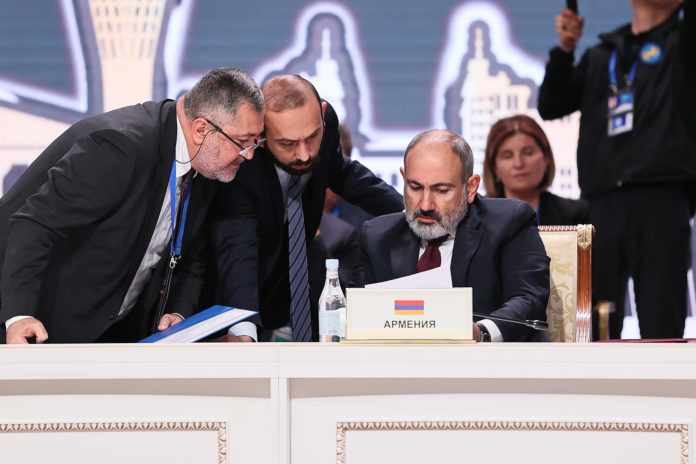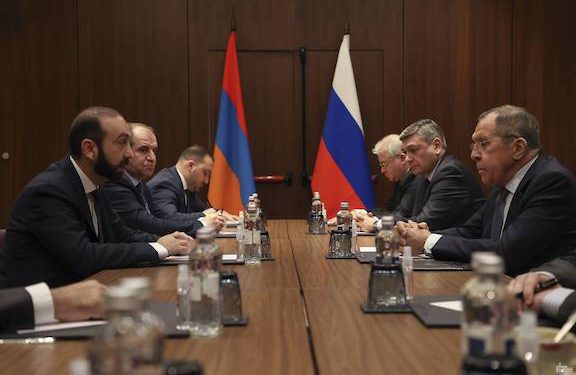ASTANA, Kazakhstan — Prime Minister Nikol Pashinyan took part in the regular session of the Commonwealth of Independent States (CIS) Heads of State Council here.
On October 14, the Foreign Ministers of Armenia, Russia and Azerbaijan met. The sides discussed the implementation process of the agreements reached by the trilateral statements of November 9, 2020, January 11 and November 26, 2021, touched upon the work within the framework of the commissions on border delimitation and border security, as well as in the direction of unblocking economic communications and transport infrastructures in the region.
During the meeting, they exchanged views on the development of the Armenia-Azerbaijan peace treaty and the settlement of the Nagorno-Karabakh conflict.
Armenia’s Foreign Minister Ararat Mirzoyan emphasized the need for the withdrawal of Azerbaijani troops from the sovereign territory of the Republic of Armenia, the immediate release of all Armenian prisoners of war and the unconditional observance of the ceasefire regime. The introduction of international mechanisms for monitoring and controlling the border situation was highlighted in terms of preventing new aggressions.
Pashinyan expressed his anger at the Azerbaijani argument, supported by Russia, that the borders between Armenia and Azerbaijan are fluid.
“As you know, we are working towards normalization of our relations with Azerbaijan. I consider it necessary to mention the importance of the role of the CIS in this context. The work of border delimitation and border security commissions is important in the settlement process, the formation of which was agreed upon on November 26, 2021, during the trilateral meeting of the President of Russia, the President of Azerbaijan, and the Prime Minister of Armenia in Sochi.











